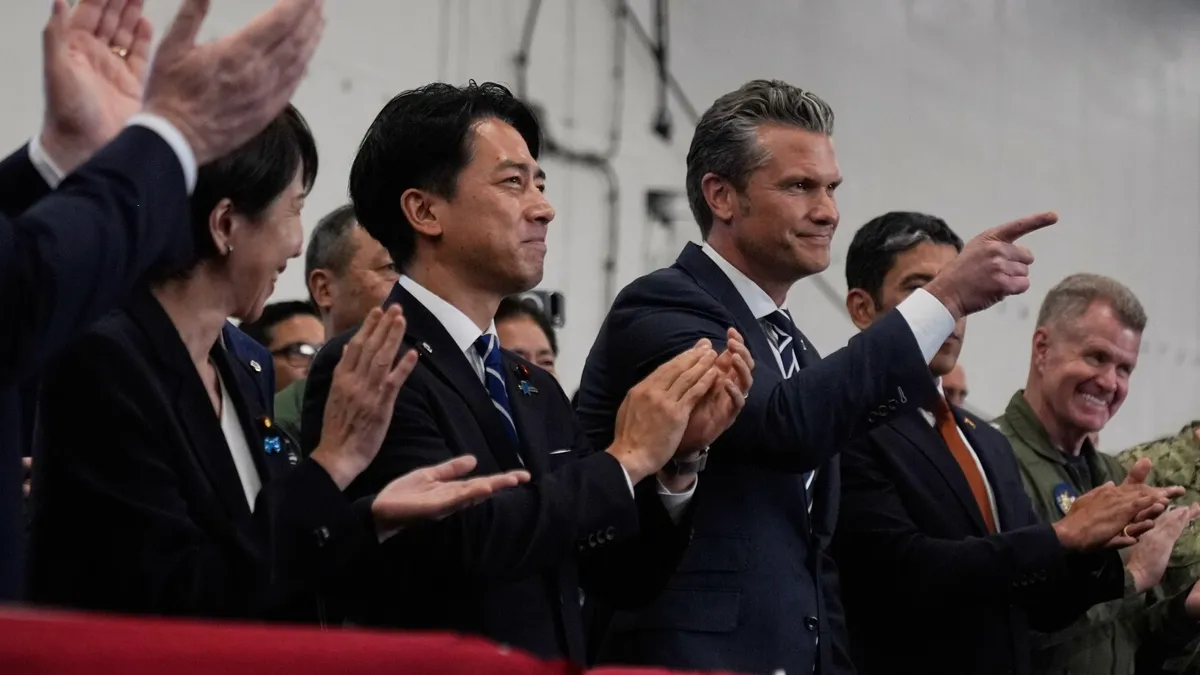
In a significant development, Defense Secretary Pete Hegseth announced on social media that the U.S. military executed three targeted strikes on Monday in the Eastern Pacific waters. These strikes were aimed at boats suspected of being involved in drug trafficking, resulting in the deaths of 14 individuals and leaving one survivor. This announcement, made public on Tuesday, highlights an alarming escalation in military actions against narcotics trafficking, which have intensified since early September.
This recent military action marks the first instance where multiple strikes were conducted and announced on the same day. Hegseth confirmed that Mexican search and rescue authorities have taken charge of coordinating the rescue for the lone survivor, although it remains unclear whether this person will remain in their custody or be handed over to U.S. authorities.
Earlier in October, the U.S. military had conducted a strike that resulted in two survivors being rescued and subsequently repatriated to their home countries, Colombia and Ecuador. Hegseth shared footage of the recent strikes on social media, showcasing two boats speeding through the water, one heavily loaded with parcels. The footage depicts both boats suddenly exploding and engulfed in flames. The third strike targeted a pair of stationary boats, which appeared mostly empty, but two individuals were seen moving before a powerful explosion consumed both vessels.
According to Hegseth, the four vessels targeted in these strikes were identified by U.S. intelligence as operating along known narco-trafficking routes and carrying significant quantities of narcotics. This latest round of military action has raised the total death toll from the 13 strikes conducted since early September to at least 57 individuals.
In his announcement, Hegseth drew comparisons between the military's operations against drug cartels and the war on terrorism initiated after the September 11, 2001 attacks. He asserted that drug cartels are responsible for more American deaths than Al-Qaeda, claiming they will be treated with the same level of military engagement. Former President Donald Trump has echoed this sentiment, stating that the United States is in an “armed conflict” with drug cartels and labeling these criminal organizations as unlawful combatants. This rationale draws on the same legal framework utilized by President George W. Bush during the early years of the war on terrorism.
Despite the aggressive stance taken by the Trump administration, there has been a notable lack of evidence provided to substantiate claims regarding the boats involved in these strikes, their direct connections to drug cartels, or the identities of the individuals killed in these military actions. Without transparent evidence, the justification for such military operations remains a contentious issue.
The escalation of military strikes against drug trafficking in the Eastern Pacific reflects the ongoing struggle of the U.S. government to combat the pervasive influence of drug cartels and their impact on American society. As these operations continue, close monitoring and analysis will be essential to understand their implications and effectiveness in the broader context of national security.